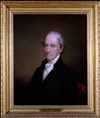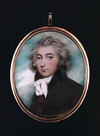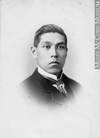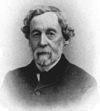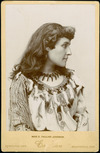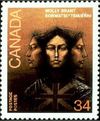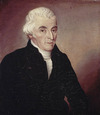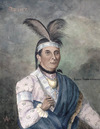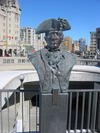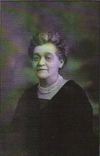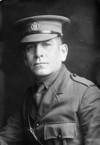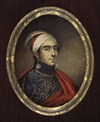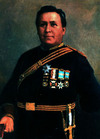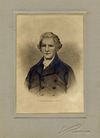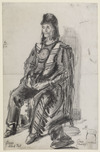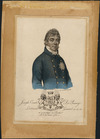Johnson. In the summer of 1782 he apparently took part in a successful raid by Joseph Brant [Thayendanegea*] against the settlements at
mid 1780s to join Joseph Brant [Thayendanegea*] on the Haldimand grant along the Grand River. During the War of 1812 Thomas’s grandfather
Thayendanegea*], where the rituals of the old league flourished. In Hale’s day the Six Nations Reserve had a population of around 3,000, including speakers of extant Iroquoian languages, a community of Munsee
Nations Indians [see Thayendanegea*] and of military and loyalist claimants for free land were trotted out as examples of the frustration
[Shakóye:wa:tha?*] at Buffalo, N.Y., in 1885 and another for the dedication of a statue of Joseph Brant [Thayendanegea*] in Brantford the following year
[Thayendanegea*], she may have been born while her parents were living in the Ohio region. John Norton* in his Journal states that Joseph was
Grand River settlement of Joseph Brant [Thayendanegea]. The long evening provided a study in contrasts: sumptuous
Indians at Canajoharie (near Little Falls). At the latter place he first met Joseph Brant [Thayendanegea], who after
THAYENDANEGEA (he also signed Thayendanegen, Thayeadanegea, Joseph Thayendanegea, and Joseph Brant
under Joseph Brant [Thayendanegea*]. By the late 1780s the family had settled in Kingston, where Archibald, a master carpenter, contracted to
settlement each year. He never learned the Mohawk language – relying instead upon Joseph Brant [Thayendanegea*] and John
[Thayendanegea*] and the Six Nations opposed the intransigent position taken by the western Indians and Alexander Mckee
Thayendanegea*]. Phoebe was a member of the Tuscarora, an Indigenous nation that joined the confederacy in 1722 after fleeing North Carolina following a war with English settlers. Her ancestors initially
Brant [Thayendanegea*] in the American Revolutionary War. Her father, Peter Smith, a prosperous Mohawk farmer, served in the 1850s as the Six
[Thayendanegea*] early in 1798. By late 1801 Mallory had acquired stills, which he seems to have leased for some time since he did not possess a licence. On 2 April 1802 he took out a recognizance to
interpreter in the Indian Department at Niagara.
Captain Joseph Brant [Thayendanegea*] soon drew
. 28 Aug. 1863 Ellen Hill (Karakwineh, meaning “moving sun”), great-granddaughter of Joseph Brant [Thayendanegea
matters with Dorchester by offering Osgoode as his spokesman on two disputed questions, the lease of the Six Nations’ lands [see Thayendanegea
judgment” and influence who travelled east in 1886 to witness the unveiling of a monument to Joseph Brant [Thayendanegea
) and negotiated with Joseph Brant [Thayendanegea*] and the Mississauga Ojibwas for a large shoreline tract near Burlington Bay (Hamilton Harbour




